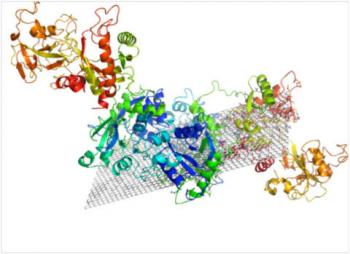Researchers from the Amrita Centre for Nanoscience and molecular Medicine in India developed a simple graphene-based method of thermally ablating highly resistant cancer cells. The method involves biodegradable graphene nanoparticles, which were found to be able to convert non-ionizing radio waves into heat energy at microscopic levels.

This heat may be enough to eliminate proteins and DNA insode cancer cells, bypassing even the most resistant cancer-cell mechanisms. The method itself is minimally invasive and can be executed on any part of the body. Once the graphene platelets get to the target tumor cells, the radio waves sent from outside the body can supply a large amount of heat at highly localized levels and destroy all cellular proteins, which should lead to cell death.
The researchers showcased this method by targeting graphene nanoparticles to individual cancer cells using an iron-transport protein called transferrin. Once selective uptake of graphene nanoparticles took place, a low power radio frequency pulse (50 watts) was sent which ablated the cells very efficiently. The researchers said they are proceeding to test these findings in animal models, and in any case this represents an interesting new approach for destroying resistant cancer cells non-invasively using graphene nanoparticles and simple radio-waves.
Source: nanowerk

